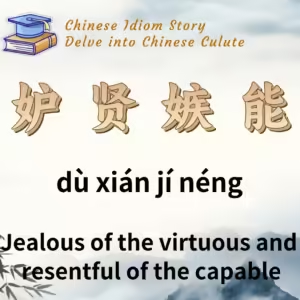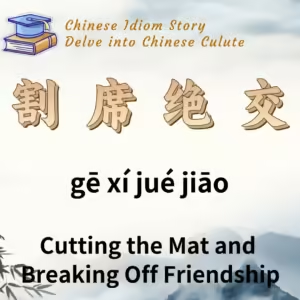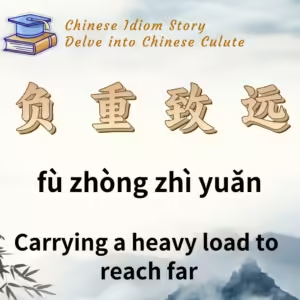
Chinese Idiom: 难兄难弟 (Nan Xiong Nan Di)
English Translation: Difficult brothers
pīn yīn: nán xiōng nán dì
Idiom Meaning: Originally, this idiom praised individuals who were both virtuous and talented. Over time, it has come to refer to two people who are similarly flawed or who find themselves in the same difficult situation, often carrying a negative connotation.
Historical Source: Shishuo Xinyu (《世说新语 · 德行》).
Idiom Story:
In the Eastern Han Dynasty, there was a renowned figure named Chen Shi, who had two sons: Chen Ji, whose courtesy name was Yuanfang, and Chen Chen, whose courtesy name was Jifang.
Yuanfang was appointed as a shizhong (侍中) and later the court considered promoting him to the position of situ (司徒), but he declined. Eventually, he was made the minister of the Ministry of Personnel. The family enjoyed great prestige, and their images were painted on the walls of the city in Yuzhou to encourage the citizens to emulate their virtues.
Yuanfang had a son named Changwen, and Jifang had a son named Xiaoxian. One day, the two boys began to argue about their fathers’ merits, each claiming that his father was more virtuous and accomplished. Their debate escalated without resolution, prompting them to seek the wisdom of their grandfather, Chen Shi.
After contemplating their dispute, Chen Shi told his grandsons, “Yuanfang is indeed a difficult elder brother, and Jifang is a difficult younger brother. Both of their accomplishments are so high that it’s hard to distinguish between them!”
The grandsons left satisfied with their grandfather’s judgment, but the phrase “难兄难弟” emerged from this story, highlighting the idea that sometimes even those in high positions or with admirable qualities can share common flaws or challenges. Today, it often conveys the notion of two individuals being equally unsatisfactory or facing similar hardships.






